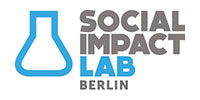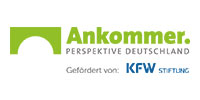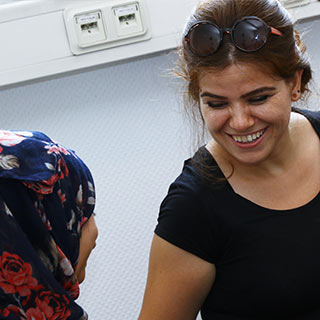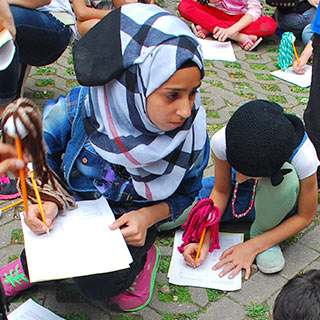About the project
About the project
The concept
 “Back on Track” offers a tailor-made experience to children and adolescents who may not have had access to school for years because of war and escape. With an advised self-learning approach, they can compensate for gaps in education and catch up with their peers. Thus the foundation for a more successful and complete education and growth is laid.
“Back on Track” offers a tailor-made experience to children and adolescents who may not have had access to school for years because of war and escape. With an advised self-learning approach, they can compensate for gaps in education and catch up with their peers. Thus the foundation for a more successful and complete education and growth is laid.
The problem
Children are the ones who suffer most from the conflict in Syria. About three million Syrian children and adolescents - either from Syria itself or from neighboring countries - do not have access to education. According to the UNHCR, only 39 percent of refugee children from Turkey, 40 percent from Lebanon, and 70 percent from Jordan attend school. ("Missing Out: Refugee Education in Crisis," UNHCR, September 2016) After five years of flight and displacement, many 12-year old children cannot read or write. Older children have some basic knowledge, but no chance to continue their education and graduate from school.
Many of the teachers-refugees themselves-teach children and adolescents through self-organized school projects in refugee camps, in order to counter the bleak outlook this young generation will have to face. This is helpful, but they are only able to reach a portion of the affected children.
In Germany, many of the recently arrived children and adolescents attend "welcome classes," but they may not have attended school for many years and therefore are not at the same education level as their peers. To then transition into a normal class is often very difficult (if not impossible), and there is a chance that the children and adolescents will fail.
The solution
The "Back on Track" project offers decentralized education that can reach a great number of those in need: children and adolescents who really want to learn are supplied with downloadable self-learning material to work with. They can work with this material on their own as far as possible or teach each other. If needed, they can also ask their friends, family, or neighbours for help. If this is not sufficient, they can receive help from our tutors on a weekly basis.
"Back on Track" mentors keep an eye on the learning process: what is the education level of this child? What does he/she have to improve in order to attend a normal class? Which self-learning materials should he/she use? Can he/she take an external exam if school attendance is not possible? What preconditions must be met for this?
In 2018, "Back on Track" will also cooperate with existing school projects for refugee children and adolescents, taking care of their education, accompanying locally working teams, and providing payment and necessary infrastructure for the school projects.
Target group: Who can learn with "Back on Track"?
The self-learning concept addresses children right from elementary school. It covers the key subjects (reading and writing in their mother tongue, maths, foreign languages or local languages, and natural sciences) beginning at an elementary level and going up to a secondary level.
The self-learning concept offers help to children and adolescents who:
- have not been able to go to school yet for any reason
- who have been traumatized by war and flight and cannot keep pace at normal school
- who are attending school again after a long time and have to close the gap with their peers
All of the refugee children had disturbing experiences, and had to witness their parents temporarily losing control of their family life. It is especially important for them to help themselves. By gaining self-development skills they experience themselves as self-sufficient and develop self-confidence.
 Work with Syrian Teachers
Work with Syrian Teachers
"Back on Track" in Germany wants to support refugee children and adolescents, and help to integrate Syrian teachers and educators into the German workforce. In order to achieve this, teachers and mentors are trained and qualified in cooperation with established institutions such as the "Pädagogiche Hochschule Schwäbisch Gmünd."
About the project
Team
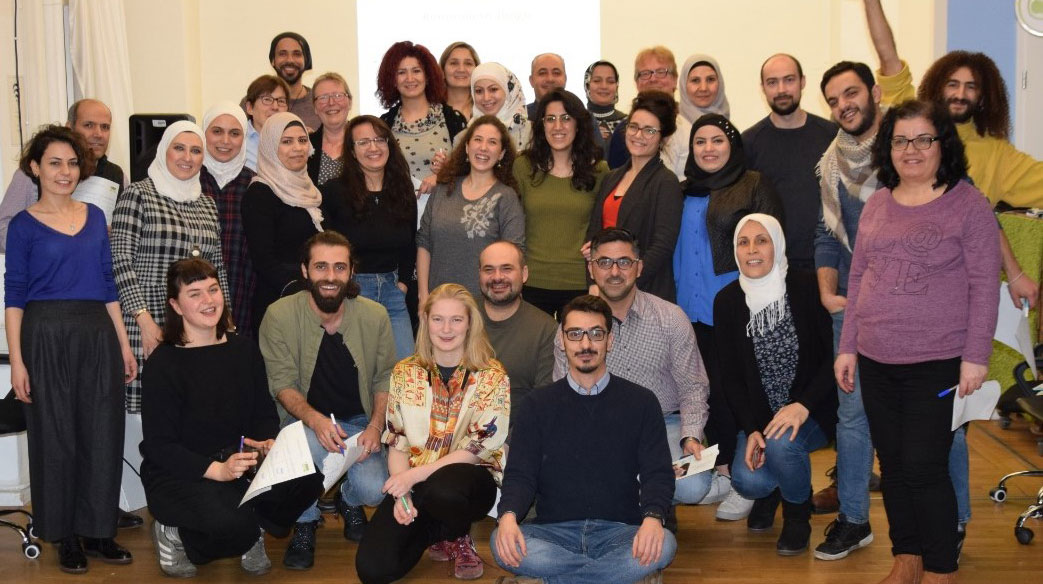
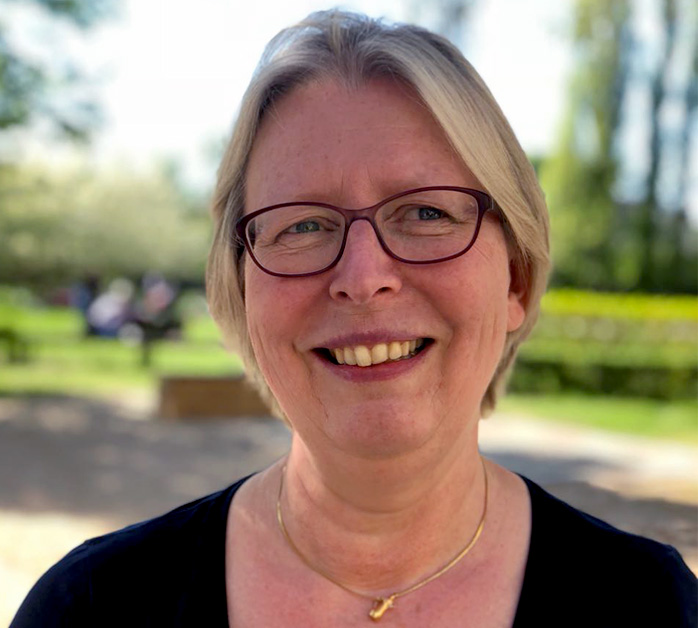
Petra Becker
Founder and Executive Manager
- Islamic Studies and Political Science, M.A.
- 2003-2012: Communications manager at the german embassy Damascus
- 2012-2016: scientific officer at SWP with focus on Syria

Vaclav Vavrycuk
Project coordination
- 2012 B.A. Logic - Phonetics, Karls-University Prague
- 2011-2017: freelance teacher (E-Learning)
- since 2015 teaching degree in Computer and Political Science, FU Berlin

Mariam Zughbi
Team coordination
- 1993 English degree at college of education Idlib
- 1993–2015 coordination and English teaching at elementary and middle schools in Syria
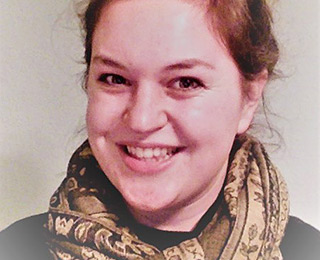
Lisa Ströher
Training Manager
- 2015-2017: B.A. Educational Siences and German Stuides, University Potsdam
- since 2017: B.A. European Ethnology and Gender Studies, Humboldt University Berlin
- 2017: 6 month Internship in a shared accomodation for refugees in Potsdam (AWO Brandenburg)
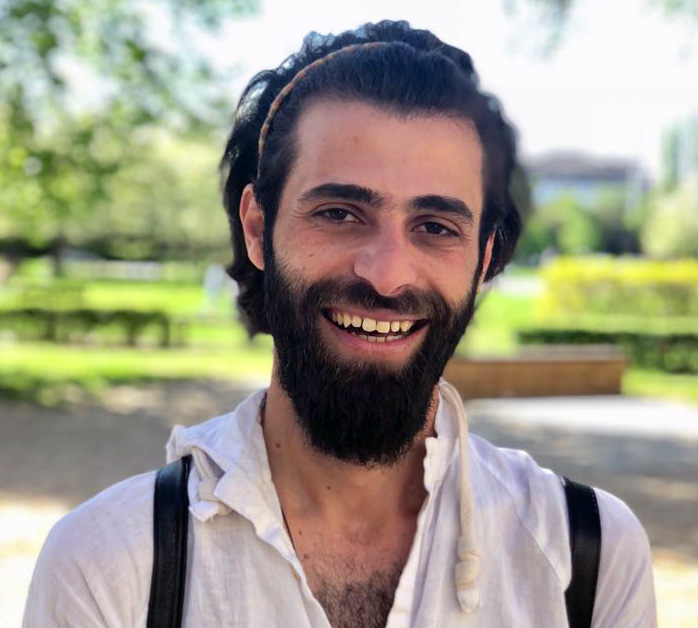
Amjad Hammoud
Psychological support
- 2006–2009 Law without degree completion, Damascus
- 2014–2015 psychological support for refugee children, SAWA, Lebanon

Noor Flihan
Social Work
- 2014 B.A. education, Damascus
- 2018 Master studies in Social Work and Human Rights, ASH Berlin
Florian Zierke
Online communications
- vocational training in graphic design (online media)
- Bachelor studies in Marketing and Market Communications
- 2018, ongoing: Master studies in Journalism and Communication Sciences, FU Berlin

Farah Zaza
Elementary School Pedagogy
- B.A. Pedagogy, Damascus 2011
- 2011–2012 Child Care Worker for children with special needs, Damascus
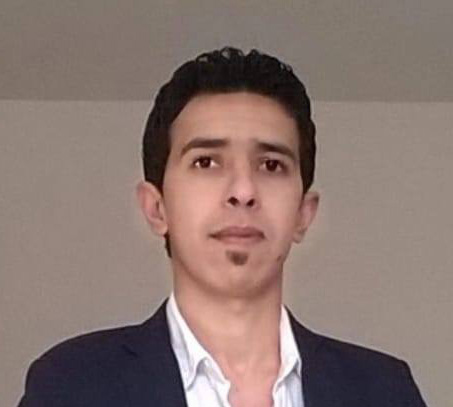
Ihab Sari
Mathematics
- 2012 Bachelor in Physics, Damaskus University
- 2013 Diploma in Pedagogics with a teaching qualification
- 2013-2015 Teacher for Physics and Math, European High School Damaskus

Majd Shujaa
Mathematics
- since 2015 Study of Civil engineering, HTW-Berlin
- 2012-2013 Volunteer teacher of mathematics and physics in Syria
- since 2015 Voluntary work with refugees in Brandenburg-OHV
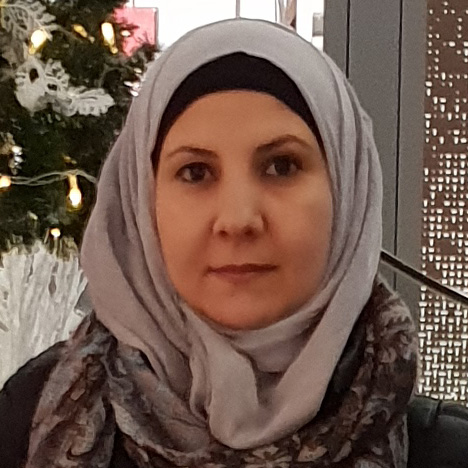
Shereen Sido Resho
English
- 2005 Bachelor English Literatur
- 2008-2015 English Teacher, high school in Aleppo, Syria

Usama Ghanoum
English
- Bachelor English Translation and Interpretation, Homs University 2010
- 2012-2015 Translator English- Arabic
- 2016-2018 Documentary film- making, Arabic Language Expert
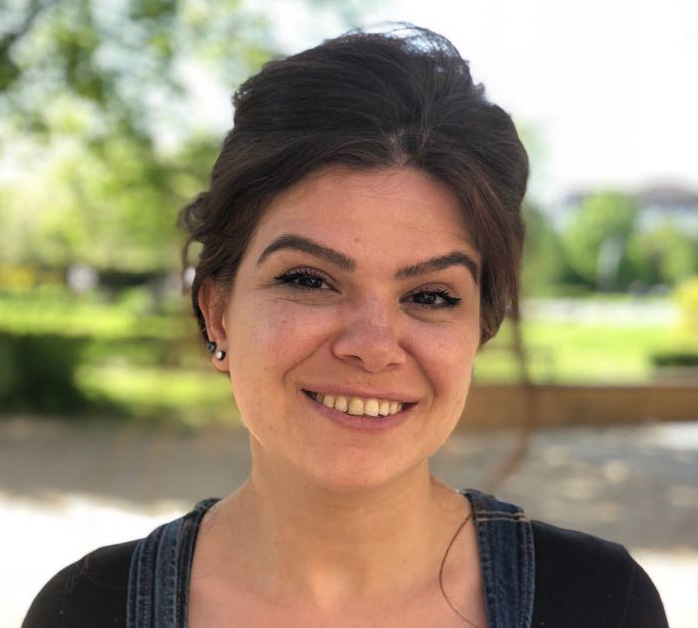
Efat Shora
Arabic Alphabetization
- B.A. in Media Studies, Damascus 2012
- 2005-2012: Preschool Teacher in Damascus
- 2012-2015: Freelance journalist
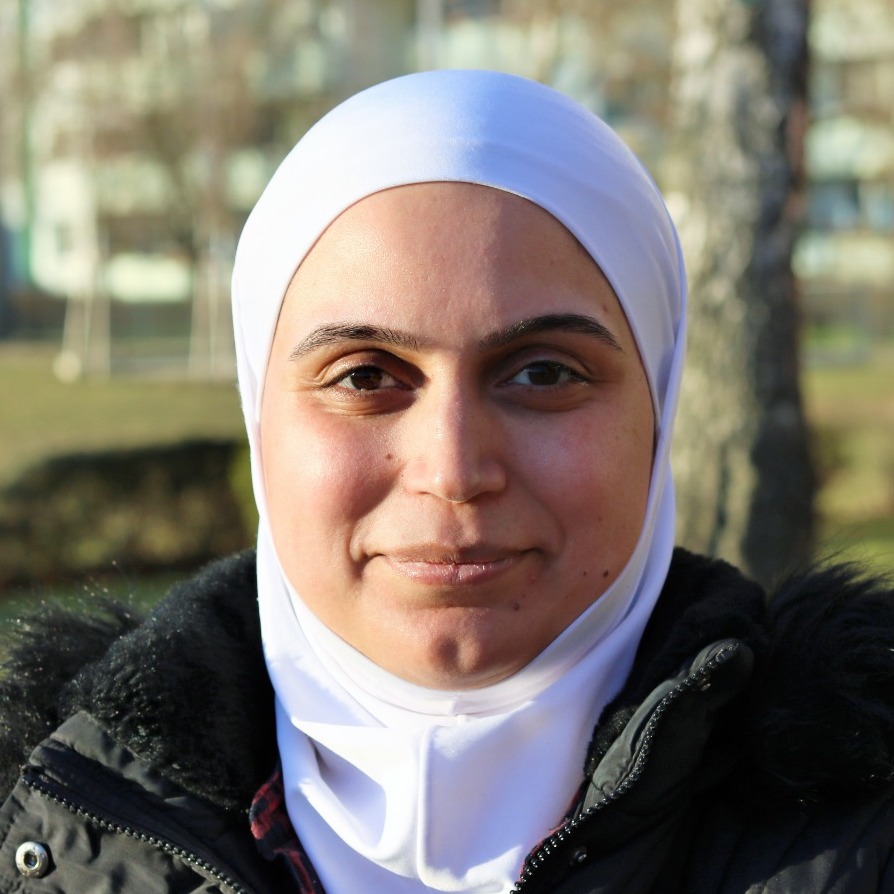
Asmaa Alhoussen
Arabic Alphabetization
- 2007 Bachelor in Psychology, University of Damaskus
- 2008–2010 Counceling and Psychotherapis at the Shabablek Media Group, Damaskus
- 2010–2012 Head of the private Omar Almochtar School, Pre-School, Damaskus

Adham Aljwabra
Mentor
- 2015 Middle School Graduation Certificate , Ahmad-Schabban-Gymnasium, Homs, Syrien
- since 2018 Robert-Havemann-Gymnasium, Berlin

Anas Alkurdi
Mentor
- 2006–2011 Business Informatics (ISE), Syrian Virtual University;
- 2009–2014 Support Engineer for cellular core networks, NSN „Nokia Siemens Networks“
- since 2018 Coordinator for Integration, ProjektPlus GmbH, Berlin
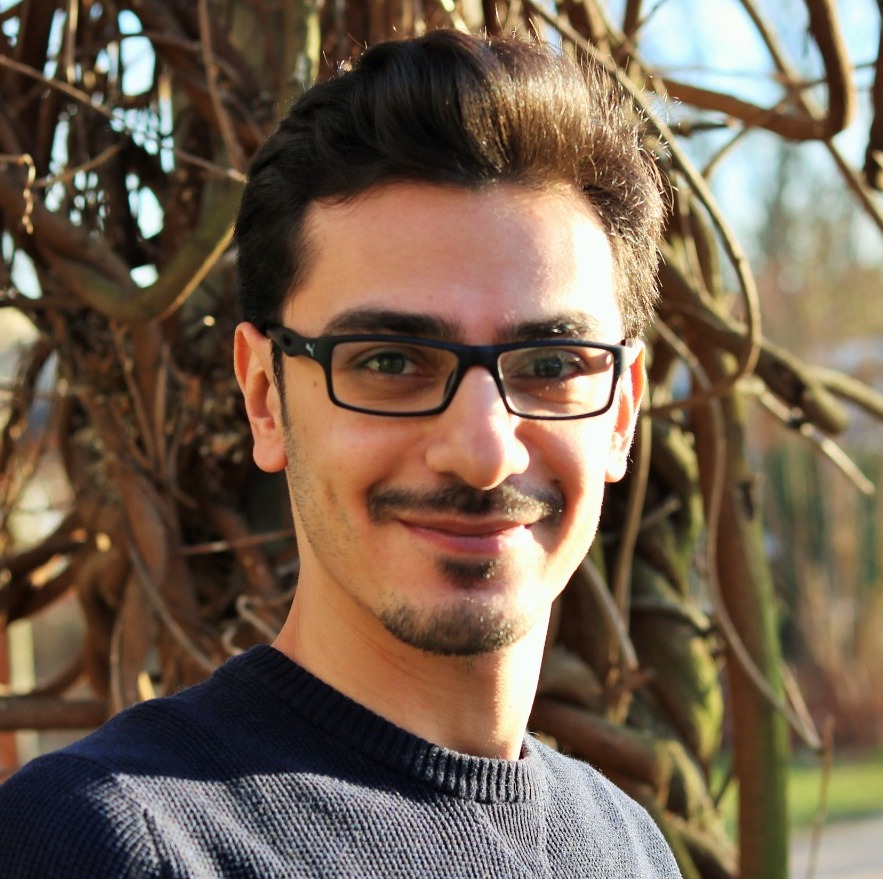
Bassel Zoughip
Mentor
- 2010-2014 B.A. Graphic Arts, Faculty of Fine Arts, Damascus University, Syria
- 2013-2014 Voluntary work for the Syrian Society for Social Development (SGFSE), Damascus, Syria.
- 2014-2015 Draftsman at MAROUF & PARTNER Artistic Productions, Damascus, Syria

Fatima Dahnin
Mentor
- 2006 B.A. Law, University Aleppo
- 2007–2011 Teacher at private advanced training institute
- 2014–2015 Teacher in refugee camps in Turkey for syrian children
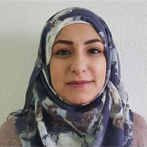
Hanadi Alhamad
Mentor
- 2010 Bachelor Pedagogics
- 2010–2015 Class Teacher in Primary Education, Deir ez-Zor, Syrien

Mia Butter
Mentor
- since 2018 International Baccalaureate Programme, Nelson Mandela School (planned graduation 2020), Berlin
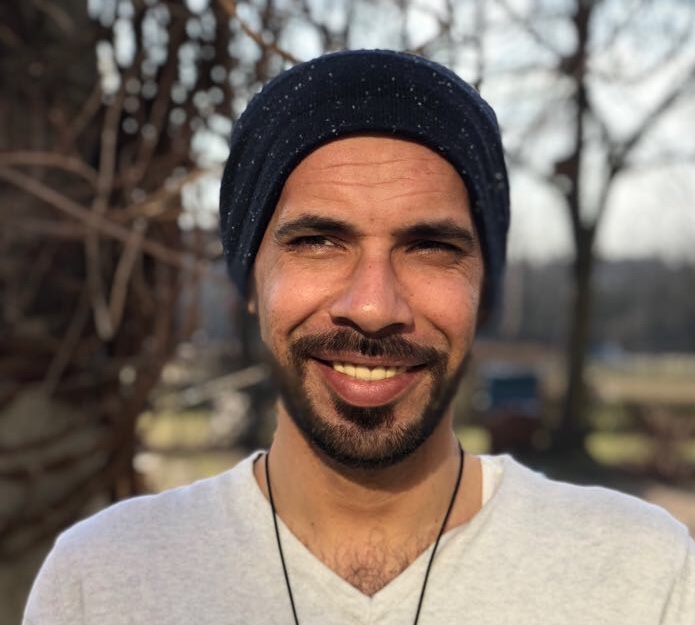
Mohammad Alali
Mentor
- 2010 Diploma in Agricultural Studies, Der Alzor, Syrien
- 2009–2010 Teacher for Biology (high school) in Hajien, Syrien

Mohammed Shaklab
Mentor
- 2016 B.Sc. Electrical Engineering, Ain Shams University, Egypt
- since 2016 Master’s study Energy Engineering, TU Berlin

Nora Gerhardt
Mentor
- since 2018 International Baccalaureate Programme, Nelson Mandela School (planned graduation 2020), Berlin

Omar Abu Alfoul
Mentor
- 2014-2015 Study of Philosophy, Damascus
- since 2016 Freelance journalist

Roula Zaza
Mentor
- 1996-2004 Studied Psychology, Damascus University
- 2003-2005 Nursery school teacher in the kindergarten

Ruba Al Refai
Mentor
- 2015 Bachelor's degree in architectural, civil and environmental engineering, Yarmouk University, Damascus
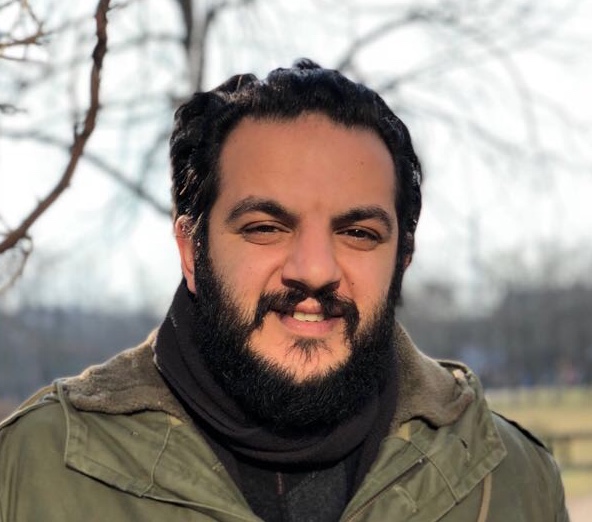
Saad Burhan
Mentor
- 2002-2010 Law, Damascus University
- since 2018 Apprenticeship as legal and notary assistant, Berlin

Samira Kheyo
Mentor
- 1993-2013 Accountant, Al-Hasaka, Syria

Sanaa Al Nomeiry
Mentor
- 2018 Further training as cultural moderator and language mediator
- since 2018 Workshops on women's rights, racism, participation and integration
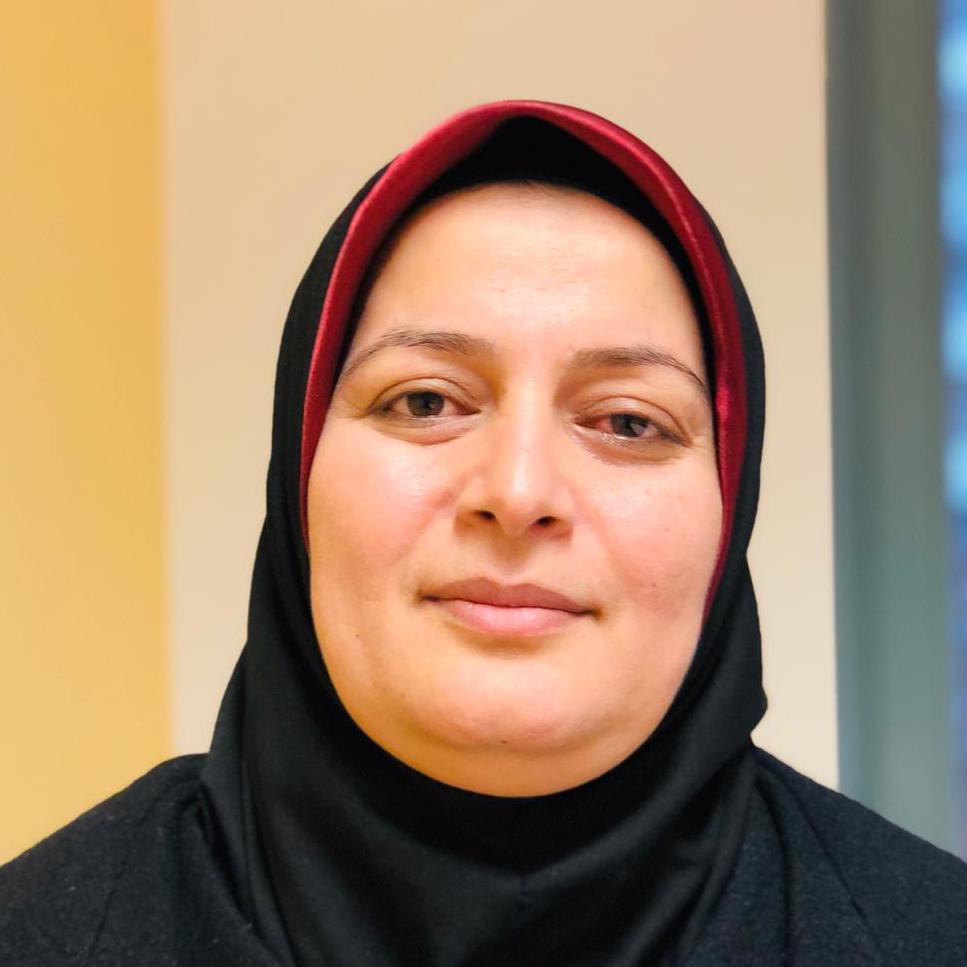
Sozan Alhassan Alhenidil
Mentor
- 1997 B.A. Pedagogy, University of Aleppo, Syria
- 1998-2014 Primary school teacher, Aleppo, Syria
- 2015-2017 Voluntary work with refugee children in Turkey
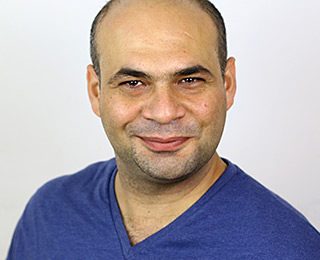
Wisam Alnajjar
Mentor
- B.A. Law, Damascus 2010
- 2004 - 2012 PR and marketing in various cultural and development projects
- 2012 - 2013 Coordinator at the Tadamon Social Community Center for Syrian Refugees in Cairo
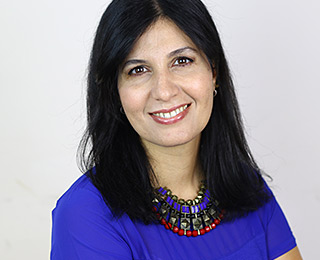
Faten Zanbouah
Deputy Project Manager
- B.A. of Fine Arts, Damascus
- 2003-2007: Arts Teacher
- 2007-2013: Research Fellow at the College of Fine Arts, Damascus, in the curriculum and textbook development department
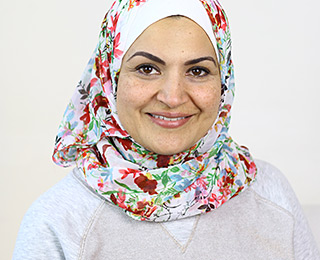
Rahaf Armanazi
Administration
- B.A. in Mechanical Engineering, Damascus 1998
- 1998-2000: Administration of a family-owned company in Damascus
- 2001-2008: Administrative assistant at the Yemeni Embassy in Berlin
- 2008-present: Housewife and mother
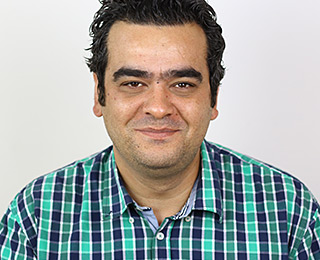
Mohammad Shora
Finance
- B.A. in Accountancy, Damascus 2008
- 2009-2015: Accountant at a housing cooperative in Damascus

Nisreen Habib
Coordinator for psychological support
- B.A. in Computer Science, Damascus 2005
- M.A. in Gender Studies, Beirut 2016
- 2012-2016: Implementation of projects supporting Syrian refugees in Lebanon
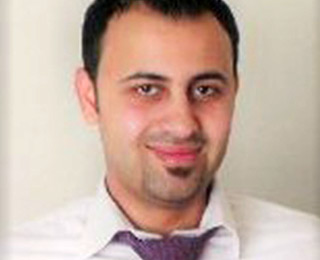
Bassem Shaaban
IT and Communications
- B.A. in Computer Science, 2007 Damascus
- M.B.A. Damascus, 2011
- Since 2015: Operations Manager at the Syrian Child Protection Network (volunteer)
About the project
Pilotphase

From July to December 2016, we worked in an emergency shelter in Berlin-Lichtenberg with about 120 children from Syria and Iraq. Our aims in this project were to:
- find out if the method of supported self-learning is suitable for children and adolescents with a refugee background
- find out if the online material supplied by UNICEF is suitable
- train Syrian teachers, students, and academics in the method of self-organized learning
The positive response was overwhelming. 120 children and adolescents were engaged with heart and soul, whether through the level tests we employed or working with the material. It goes without saying that they enjoyed taking part in activities such as tinkering, painting, playing, and singing, which we offer to give them the opportunity to experience themselves through creative mediums.
 Findings from the pilot phase
Findings from the pilot phase
- The pedagogical staff of the emergency shelter noticed that the children were unusually relaxed - some possible reasons for this are that all of them could communicate in their mother tongue (Arabic or Kurdish), our staff knew about the social and cultural background of the children, and most of them shared the same story of being a refugee. Therefore, the children did not feel like they needed to explain themselves and the atmosphere was more relaxed.
- However, the constant fluctuation in the emergency shelter made it difficult to work continuously with the children. We could not continue working with the children who moved out of the shelter. Therefore, we decided to move to a neighborhood community center in Lichtenberg.
- Neither the parents nor the children are aware of the importance of keeping their mother tongue alive. We did not offer a subject like Arabic during the pilot phase because the parents were expressly against it. There is a lot of educational/awareness work to be done on this issue. Maintaining the mother tongue is not only a goal that can be achieved relatively easy, but one that contributes to the positive self-image of the children: they realize that it is necessary to learn a new foreign language, but at the same time they realize that they know things that other children do not know. "Back on Track" will concentrate on clarifying how important it is for children to maintain their mother tongue.
- The material provided by UNICEF is suitable, but most of the time it is not sufficiently self-explanatory. We found that especially in English, audio files are crucial because the children do not have anyone to help them to pronounce the words correctly. Apart from the UNICEF material we have been testing online material for English and maths. In the Future, we will need to produce our own material.
- Parents of children under nine years old do not think it is necessary for their children to attend our activities regularly, as they think that their children get along fine without support. This is why we decided to focus on children from the ages of nine to fifteen.
- An important precondition for the optimization and dissemination of our work is to train Syrian teachers and mentors so that they can share their knowledge with teachers in the neighbour countries of Syria and other parts of Germany. With our cooperation, the PH Schwäbisch Gmünd successfully applied for EU funding to ensure the further training of these teachers. WIthin this project we will establish a workshop and a "best practise guideline" for teachers dealing with children that had their education interrupted by war and escape. We are cooperating with projects all over Europe and in Turkey. At the same time, we are planning a hybrid training course for refugee teachers which contains German classes as well as practical work in German schools.
About the project
"Back on Track" on site



Berlin
We moved to the "Kiezspinne" at the beginning of 2017 in order to ensure that we can work continuously with the children and adolescents. This neighbourhood community centre in Lichtenberg is just ten minutes away from the shelter. There, we have a bright and cosy room in which we can work with the children each Saturday from 2 p.m. to 4 p.m.
To motivate the parents to participate in this Saturday offer and to bring their children to "Kiezspinne" we have been offering an informal “language coffee shop” for the parents since February. Thus, the waiting time for the parents turns into reasonably used time.
SInce November 2017, we expanded our work to a culture center in Berlin-Charlottenburg called Ulme 35. The same concept we use in Kiezspinne is employed there every Sunday from 2 p.m. to 4 p.m.
Neighbour countries of Syria
In 2018 "Back on Track" will establish cooperative projects in the neighbouring countries of Syria who host the largest number of refugees. A team of mentors and teachers will teach the concept in Turkish and Lebanese self-organized school projects and will train a team of teachers. These teachers will in turn hand on the information to others so the knowledge will be spread in a snowball effect.
Online
The work of "Back on Track" is not based mainly on online material. Very few children and adolescents can motivate themselves without being in contact with a mentor. That is why we count on mentors to accompany the children throughout their learning process. They depend on obtaining the teaching material online because "Back on Track" will be established not only in Berlin, but in different places in Germany and Syria’s neighbour countries as well. Nevertheless, the project urgently needs the individual and professional support of mentors and is not meant to be a purely online project.
However, all school projects for Syrian refugees — in Germany or in the region around Syria — suffer from the high fluctuation of students. In Germany, the reason for this can be found in the fact that families have to move between different shelters, sometimes to hostels and then into stable housing; in the neighbouring countries informal refugee camps are cleared or the families move around trying to find work or stable accommodation.
In such situations, online material enables children to stay on the ball. On our website, they can get information on whether there is a "Back on Track" project nearby and where the child can find a mentor.
Our partners
